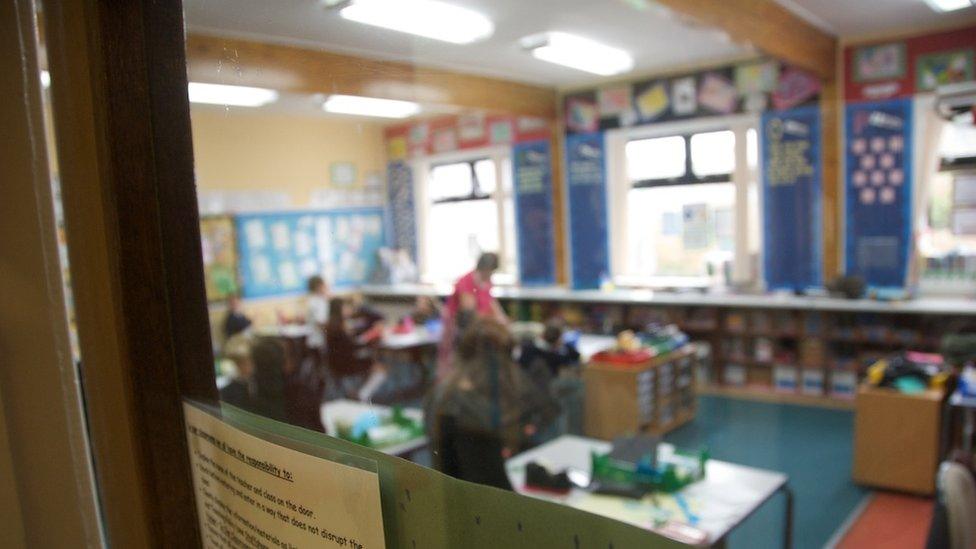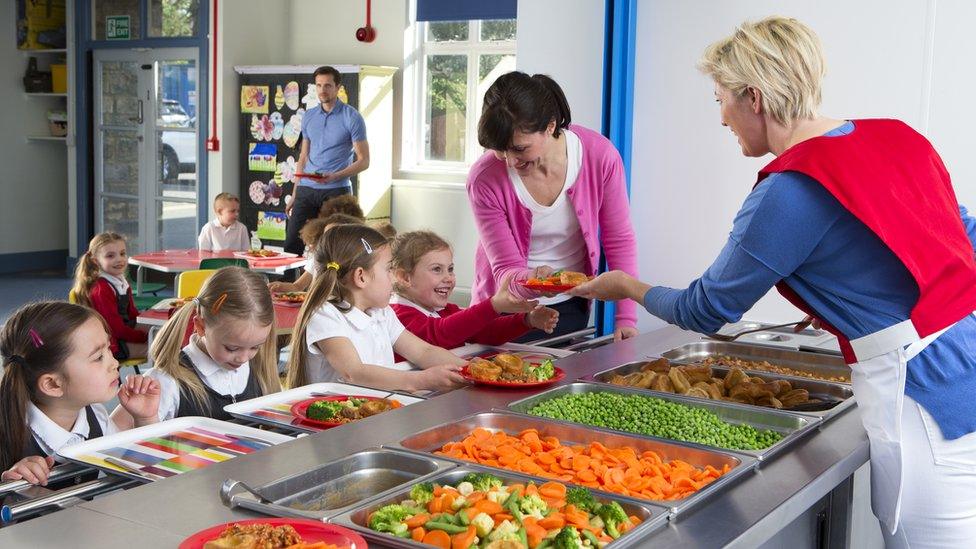Complex challenge of tackling impact of poverty on education
- Published

Scotland's largest teaching union, the EIS, is arguing that teachers need help to tackle the impact of poverty on children's education.
Many teachers are concerned that there is little they can do about some of the issues they see in their classrooms.

It is hard to say with absolute certainty that teachers are seeing more of the effects of poverty and disadvantage.
The evidence of its day-to-day impact on schoolchildren is largely anecdotal and not formally recorded by councils or the government.
However, the largest teachers union, the EIS, has been monitoring the issue since 2013 and believes the problem is worsening.
Issues such as welfare changes, local unemployment black spots and zero-hours contracts are sometimes cited.
Meanwhile the Scottish government's efforts to close the poverty-related attainment gap have put a fresh focus on the issue.
According to the Child Poverty Action Group, almost one in four children in Scotland are living in poverty.
Children are considered to be living in poverty if they live in households whose income is less than 60% of the median.
According to the group's most recent figures, a two-parent family with two children of school age would be defined as being in poverty if they are living on less than £413 a week after housing costs.
A narrow financial definition of poverty does not, of course, say anything about the love, care and nurturing a child receives at home however hard it may be to make ends meet.
Nor is poverty and disadvantage confined to the poorest geographical areas of Scotland.

The Scottish government is providing £750m over this parliament to drive up attainment in schools
This is not a straightforward issue - it is not simply about the cost of living on a low income or, for instance, helping a child in a house without books improve their reading.
It is also about difficult issues which face society as a whole: for example social exclusion and intergenerational unemployment and poverty. There is also the issue of the "working poor" - a child may be living in poverty even though a parent is working.
The Scottish government wants to drive up attainment in schools.
The government is providing £750m over the course of this parliament to help schools in disadvantaged areas. Some of this money goes to councils - some to schools directly.
Meanwhile, the Child Poverty (Scotland) Act 2017 places a duty on the Scottish government to work to eradicate child poverty by 2030.
In schools, the things money has been spent on include extra staff or specialists, additional resources and new equipment or technology to make lessons more engaging. Many head teachers believe this money is making a difference.
Money is also spent on schemes directly linked to the children's wellbeing.
Clothing grant
Looking at how to make lessons more engaging and relevant or helping to mitigate the direct impact of a low income on everyday life is, in some respects, a more straightforward challenge.
For instance, a growing number of local authorities provide free meals over the holidays or take practical steps to ensure children who do not have a computer at home do not lose out.
Last week the government announced that all Scottish councils would be offering a minimum school clothing grant of £100, helping to even out widespread variations in provision.
But sometimes the challenge of the impact of poverty - and actual deprivation - is more complex.
It may involve the impact of living in poor housing, hunger or living in an area which faces significant social problems.
Perhaps poor behaviour or regular absenteeism may be the result of a child's difficult family circumstances? What if a parent is unable to ensure a child is up and ready for school on time? A child may even be helping to care for a close relative who is seriously ill.
Holistic approach
These can be difficult issues for policy-makers to actually solve because they are not simply about money or public spending.
If the issue were merely an economic one, it could be pointed out that unemployment is low and that the minimum wage has risen substantially, although many children defined as being in poverty do have working parents and critics of the UK government remain concerned about changes to the welfare system.
The Scottish government agrees that tackling poverty is a difficult issue which requires a holistic approach. Supporters of Scottish independence would also contend that some of the mechanisms to help are dealt with by Westminster.
The Scottish government does, however, expect the education system to play its part.
This notion isn't contentious.
The worry for some teachers is that they are not simply trying to raise attainment - they may be seeing the impact of problems caused by things they can do little about themselves or are going beyond the call of duty to try to help.
- Published25 May 2018

- Published16 February 2018
